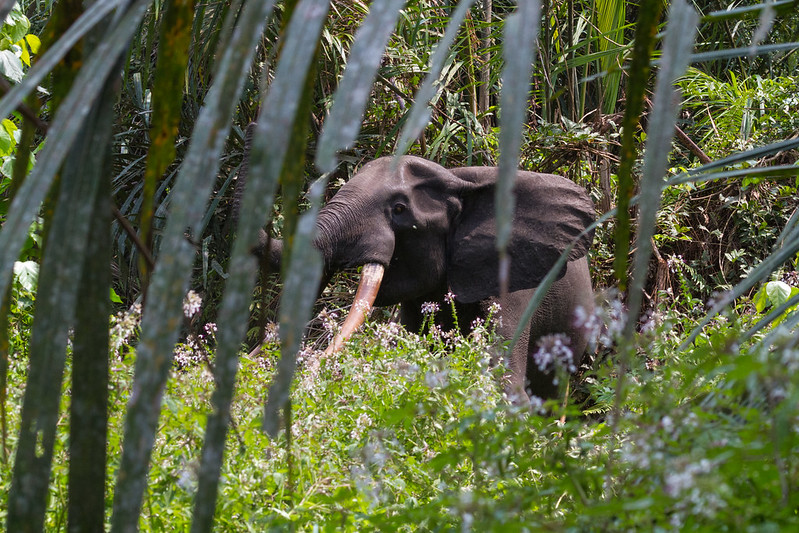Fears for elephants’ diet as temperatures rise

date: 16/06/2021
Research in Lopé National Park in Gabon has found that fruiting in Afrotropical forests declined by 81 % in the 32 years from 1986 to 2018, and that the body condition of fruit-dependent forest elephants declined over 21 years to 2018 by 5 %.
The findings coincide with an increase in human-elephant conflict, with elephants coming out of the forest to look for food in plantations and in towns, said Professor Lee White, Gabon’s Minister of Forests, Oceans, Environment and Climate Change, in a recent talk. This suggests that the movement of thinner hungry elephants could be a climate adaptation issue, he said. ‘This is just another reminder that we cannot separate the issues of biodiversity and climate change.’
From 1986 to the present, researchers monitored tree species that are important to the diet of gorillas, chimpanzees and elephants. Each month, they observe tree crowns and record the proportions of each canopy that are covered with flowers, fruit and leaves. ‘We found that trees at Lopé are reproducing less often and that the probability of encountering flowers and fruit has declined significantly over time,’ the authors say in the article, published in the journal Science.
Climate change experienced at the site is the most likely cause of this shift in reproduction. For some tree species, flowering is triggered only when temperatures drop below a certain threshold. This suggests that with rising temperatures flowering will be triggered less often. Global warming has caused minimum daily temperature to increase, on average, by 0.25°C per decade at Lopé, which has received EU funding since 1992 through the ECOFAC programme.
The changes are likely to affect fruit-dependent species including great apes, monkeys, and many bird species, as well as elephants. Analysis of thousands of photos of elephants taken since 1997 enabled the researchers to assess their changing body condition. This declined by 5 % from 1997 to 2018.
Large animals (megafauna) play a vital role in ecosystems, but are more susceptible to extinction. Securing their future depends on not only on our ability to protect against human threats but also on maintaining the health of the ecosystems they depend upon. The research showed that even in remote areas, indirect consequences of human activity – such as climate change – are impacting on the wellbeing of wildlife.
